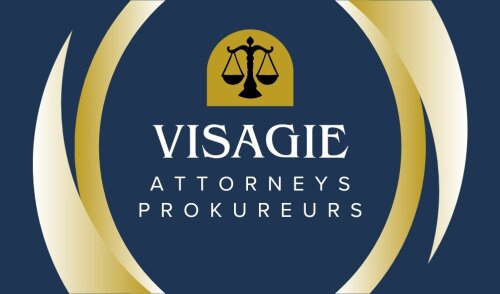Best Child Abuse Lawyers in Rustenburg
Share your needs with us, get contacted by law firms.
Free. Takes 2 min.
Free Guide to Hiring a Family Lawyer
List of the best lawyers in Rustenburg, South Africa
About Child Abuse Law in Rustenburg, South Africa
Child abuse is a critical issue in Rustenburg, South Africa, as in many parts of the world. It encompasses physical, emotional, and sexual harm inflicted upon a child, as well as neglect and exploitation. The law in South Africa, including Rustenburg, is stringent regarding child abuse cases, reflecting national and international obligations. The Children's Act 38 of 2005 provides comprehensive legislative measures to protect children's rights and well-being, outlining various forms of abuse and the legal implications for perpetrators. Understanding these laws is crucial for safeguarding children's rights and ensuring that perpetrators are held accountable for their actions.
Why You May Need a Lawyer
Legal assistance is often essential in navigating the complexities of child abuse cases for several reasons. If you suspect a child is being abused or if you are accused of child abuse, consulting a lawyer ensures your rights are protected while guiding you through the legal processes. A lawyer can be crucial in reporting alleged abuse cases to authorities, seeking legal protection orders, or representing you in court if an accusation is made against you. Additionally, for victims or their guardians, a lawyer can assist in filing claims for compensation, ensuring that justice is served, and providing emotional support through challenging legal paths.
Local Laws Overview
The legal framework in Rustenburg, South Africa, includes several key aspects that focus on child protection. The Children's Act 38 of 2005 outlines the rights of children and the responsibilities of parents, caregivers, and authorities in safeguarding those rights. Child offenders are dealt with under the Child Justice Act 75 of 2008, emphasizing rehabilitation over punishment. The Sexual Offences Act also plays a role when abuse involves sexual elements. Moreover, South Africa has established child protection units and designated family courts to specifically handle cases related to child abuse, ensuring sensitive and child-centered legal proceedings.
Frequently Asked Questions
What constitutes child abuse in Rustenburg, South Africa?
Child abuse encompasses a range of harmful behaviors toward a child, including physical harm, emotional abuse, sexual abuse, neglect, and exploitation, as defined by the Children's Act.
Who can report suspected child abuse?
Any person who suspects child abuse can report it. The Children's Act mandates that certain professionals, such as teachers and doctors, are legally obligated to report suspected abuse cases.
How do I report child abuse?
In Rustenburg, you can report child abuse to the local police, a social worker, or child protection services. You can also contact the South African Police Service's Family Violence, Child Protection, and Sexual Offenses Unit.
What penalties do offenders face for child abuse?
Offenders can face serious legal consequences, including imprisonment, fines, and mandatory participation in rehabilitation programs. The severity of the penalty depends on the nature and extent of the abuse.
Can a child testify in court?
Yes, children can testify in court, but there are special provisions to protect them during the process. Courts may use intermediaries or allow testimony via closed-circuit television to minimize trauma.
What is the role of social workers in child abuse cases?
Social workers play a crucial role in assessing the child's safety, providing support, and coordinating with legal authorities to ensure the child's protection throughout the legal process.
How long does a child abuse case take to resolve?
The duration of a child abuse case can vary depending on its complexity, the evidence available, and court schedules. A lawyer can give a more precise timeframe based on individual case details.
What support is available for victims of child abuse?
Victims of child abuse can access counseling services, medical care, and legal assistance through government and non-governmental organizations dedicated to child welfare in Rustenburg.
Can the public access court records in child abuse cases?
No, court records involving minors are typically confidential to protect the child's identity and privacy, with access strictly controlled and limited to authorized individuals.
How does the court determine custody in abuse cases?
The court prioritizes the child's best interests when determining custody, considering factors such as safety, emotional well-being, and the ability of each parent to provide a stable environment.
Additional Resources
If you are involved in a child abuse case or need assistance, consider reaching out to the following resources:
- South African Police Service Family Violence, Child Protection, and Sexual Offenses Unit
- Department of Social Development: Offers counseling and support services for victims and their families
- Childline South Africa: Provides a helpline for children in distress and assistance with reporting abuse
- Legal Aid South Africa: Offers legal advice and representation for those unable to afford private legal services.
- NGOs like Teddy Bear Clinic and Child Welfare South Africa: Provide various support, legal guidance, and advocacy for child rights and protection.
Next Steps
If you need legal assistance regarding child abuse in Rustenburg, South Africa, it's essential to act promptly. Begin by consulting with a qualified lawyer who specializes in family law or child welfare issues to discuss your situation. Gather all relevant documentation, such as medical reports, police reports, or witness statements, to assist in your case. Reach out to local support services to ensure the emotional and psychological well-being of affected individuals. Remember, effective legal intervention is crucial to protecting children's rights and ensuring justice is served.
Lawzana helps you find the best lawyers and law firms in Rustenburg through a curated and pre-screened list of qualified legal professionals. Our platform offers rankings and detailed profiles of attorneys and law firms, allowing you to compare based on practice areas, including Child Abuse, experience, and client feedback.
Each profile includes a description of the firm's areas of practice, client reviews, team members and partners, year of establishment, spoken languages, office locations, contact information, social media presence, and any published articles or resources. Most firms on our platform speak English and are experienced in both local and international legal matters.
Get a quote from top-rated law firms in Rustenburg, South Africa — quickly, securely, and without unnecessary hassle.
Disclaimer:
The information provided on this page is for general informational purposes only and does not constitute legal advice. While we strive to ensure the accuracy and relevance of the content, legal information may change over time, and interpretations of the law can vary. You should always consult with a qualified legal professional for advice specific to your situation.
We disclaim all liability for actions taken or not taken based on the content of this page. If you believe any information is incorrect or outdated, please contact us, and we will review and update it where appropriate.













